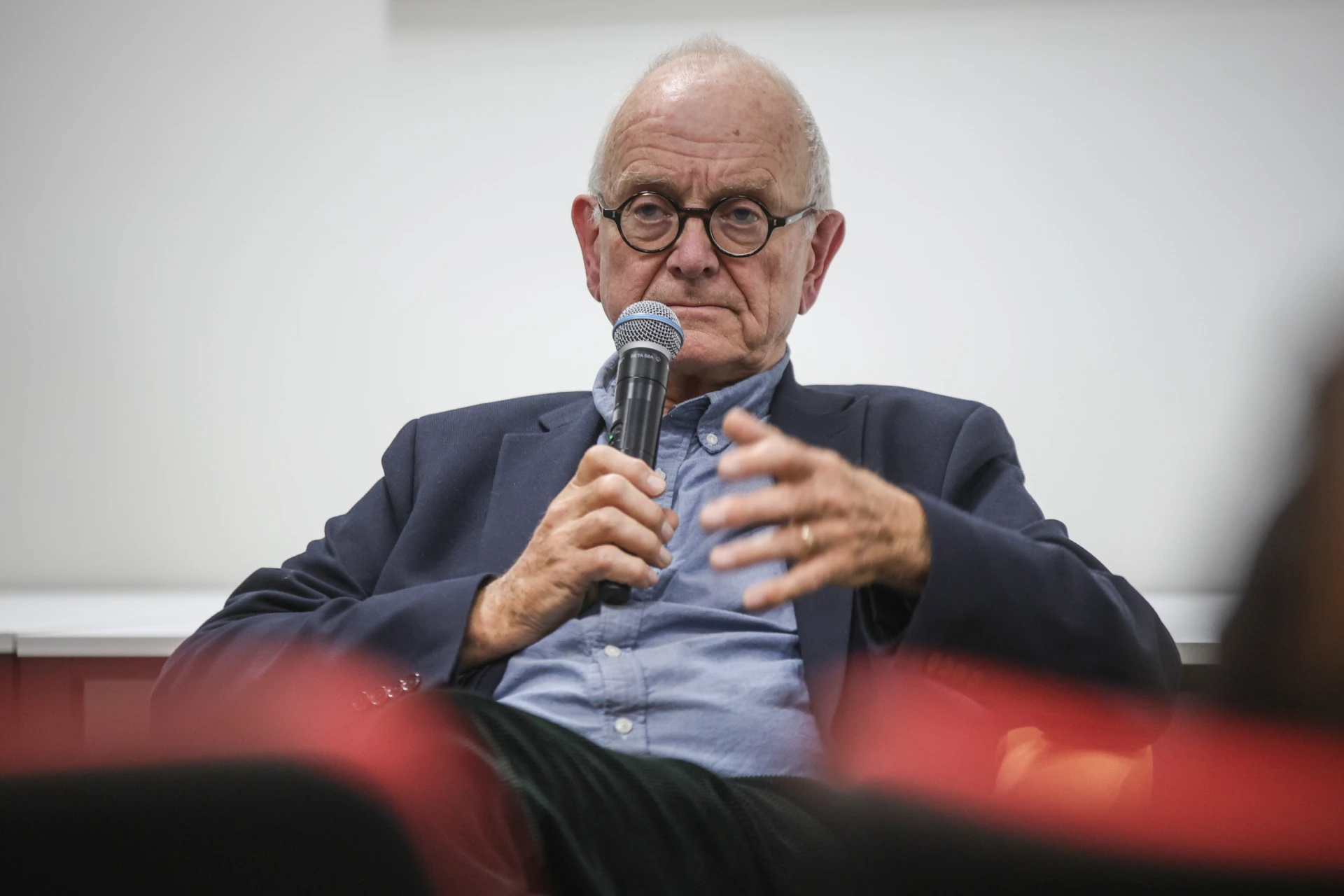British neurosurgeon and writer Henry Marsh, 75, who has been supporting Ukrainian medicine since 1992, spoke with Ukrainska Pravda about his decades-long work in Ukraine, medical errors, and attitudes toward death—both his own and others'.
Marsh first arrived in Kyiv in 1992 by chance, when a British businessman importing medical equipment to the post-Soviet space needed a neurosurgeon to lecture on modern surgical techniques.
"Although I knew that medicine in the USSR lagged behind Western medicine, I was still shocked at how bad everything was," Marsh recalls.
What began as a one-time trip turned into a 30-year partnership with Ukrainian hospitals. For years, he brought surgical equipment in suitcases, trained young doctors, and performed operations alongside Ukrainian colleagues.
Now retired from surgery for about a decade, Marsh continues visiting Ukraine—but to teach rather than operate.
"When I come to Ukraine, I lecture young doctors and students. I spent the last few days in Ivano-Frankivsk, Poltava, and now in Kyiv," he says.
"It's hard to imagine anything more disgusting"
Marsh recalls a conversation between Putin and Xi Jinping about organ transplants for eternal life.
"It's hard to imagine anything more disgusting. And at the same time, Putin is killing tens of thousands of young Ukrainians, hundreds of thousands of Russians—only for himself. This is terrible. This is blasphemy. This is disgusting," he says.
When asked about life extension research, Marsh expresses strong opposition. "Putin and Xi Jinping were talking about organ transplants to extend their lives. And, as is known, in China they executed prisoners and used their organs for transplants—this may be 'rational,' but absolutely barbaric."
"I think research aimed at making it possible to live to 150 years is a very bad idea. Because only billionaires will be able to afford it. And this will only increase social inequality—the evil that is now growing in many societies, especially in Britain and the USA, where the gap between rich and poor is becoming increasingly deeper," Marsh argues.
He adds a scientific caveat: "However, the brain cannot be transplanted. And after 85, the risk of developing Alzheimer's disease is almost 45%. So perhaps Xi Jinping and Putin will someday have new young kidneys, liver, lungs, blood from young donors—but the brain will remain old and sick. Like Brezhnev at the end of his life."
War's impact on Ukrainian children
Discussing the psychological consequences of war, Marsh calls it "without exaggeration, a unique 'experiment'—Europe hasn't had such a large war for many decades." He predicts Ukraine will face a massive post-traumatic stress disorder problem, noting that research from American and British soldiers who fought in Iraq and Afghanistan shows those with pre-existing psychological problems face higher PTSD risks.
"But there's a limit for everyone—everyone breaks if suffering lasts too long," he adds.
After the Vietnam War, the situation in the US worsened because "soldiers returned home and society rejected them. They fought in a 'bad war' that no one wanted to remember." In Ukraine, the situation is different: "Your military definitely knows what they're fighting for."
"But after the war ends, other serious problems will remain—rebuilding the country and, of course, children. A generation of children is growing up in Ukraine, deeply traumatized by war: many have lost their homes, relatives, years of education. This will have long-term consequences—psychological, social, and educational," Marsh warns.
British support for Ukraine
On support for Ukraine in Britain, Marsh is unequivocal: "You won't hear any voices—either in politics or media—that question support for Ukraine. Perhaps this will change someday, but currently, no politician says support for Ukraine should be stopped. Absolutely no one. And I think this will continue."
He attributes this to British culture: "Despite all its flaws, Britain has a strong tradition of supporting those called 'underdogs.' This is a deeply rooted sense of justice. After all, most international sports—football, rugby, tennis, cricket, and others—originated precisely in Britain. Following rules and fair play are an integral part of our culture. And it's obvious that Russia's invasion of Ukraine is absolute evil."
Marsh himself continues helping: he and friends recently purchased and delivered an off-road vehicle to soldiers on the front lines. "I think we all should do what we can. Support for Ukraine in England currently raises no questions," he says.
"Hope is one of the most powerful medicines we have"
Reflecting on the balance between empathy and professional detachment, Marsh admits finding it "with certain difficulties." He quotes one of his mentors: "We must never lie to patients, but we must never deprive them of hope. Sometimes this is very difficult."
"That's why we as doctors must radiate hope, confidence, positivity, and care. All of this is an extremely important component of the holistic complex of surgical care. Being a surgeon is much more than just operating in the operating room," he says.
When asked what's harder—operating or delivering bad news—Marsh doesn't hesitate: "Bad news is much harder. Operating is easy. Talking with patients is much more difficult. Even harder is communicating with colleagues, building relationships in the team. These are the most difficult parts of medicine. Surgery is simple compared to this. Sounds strange, but it's true."

